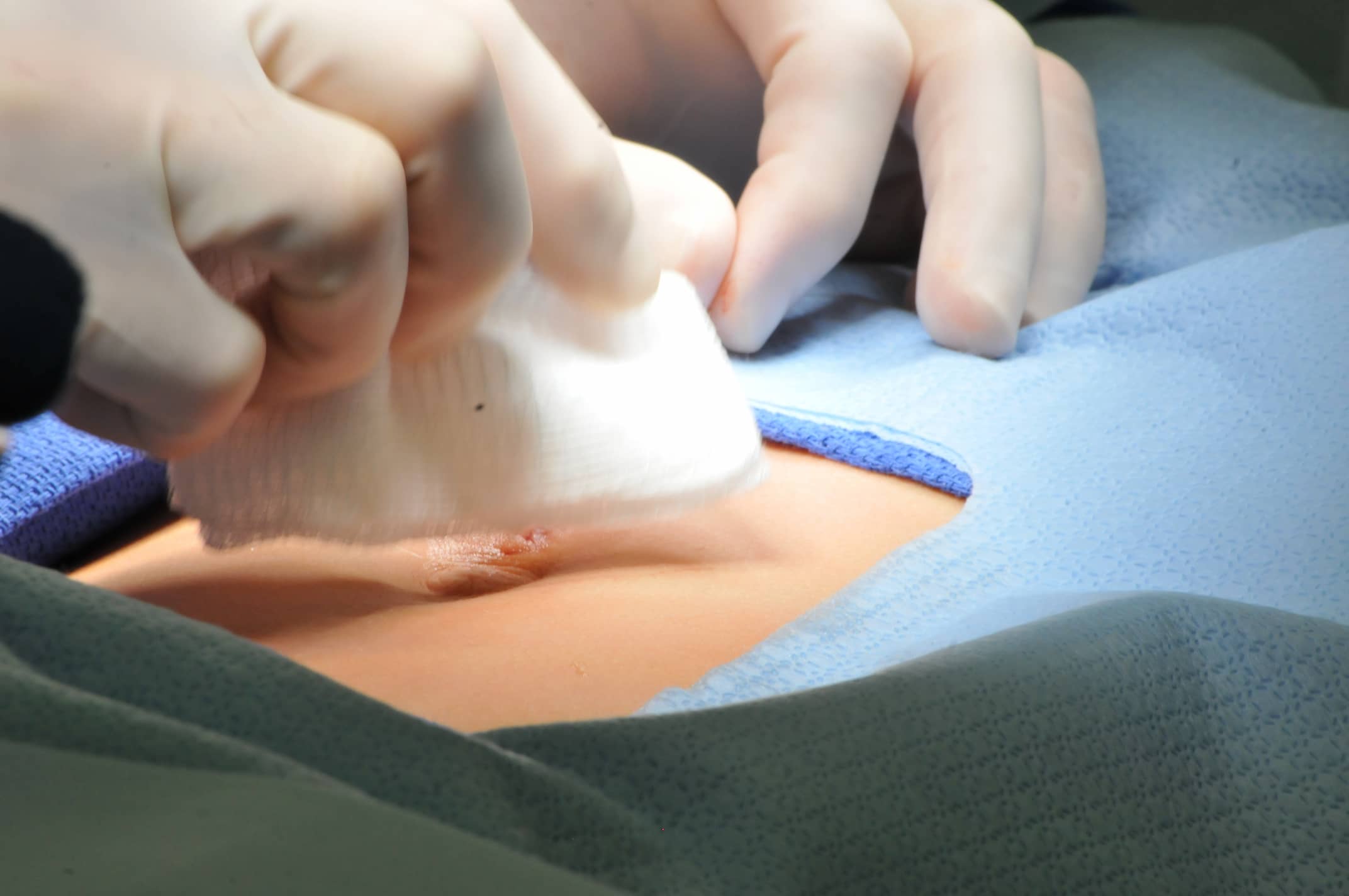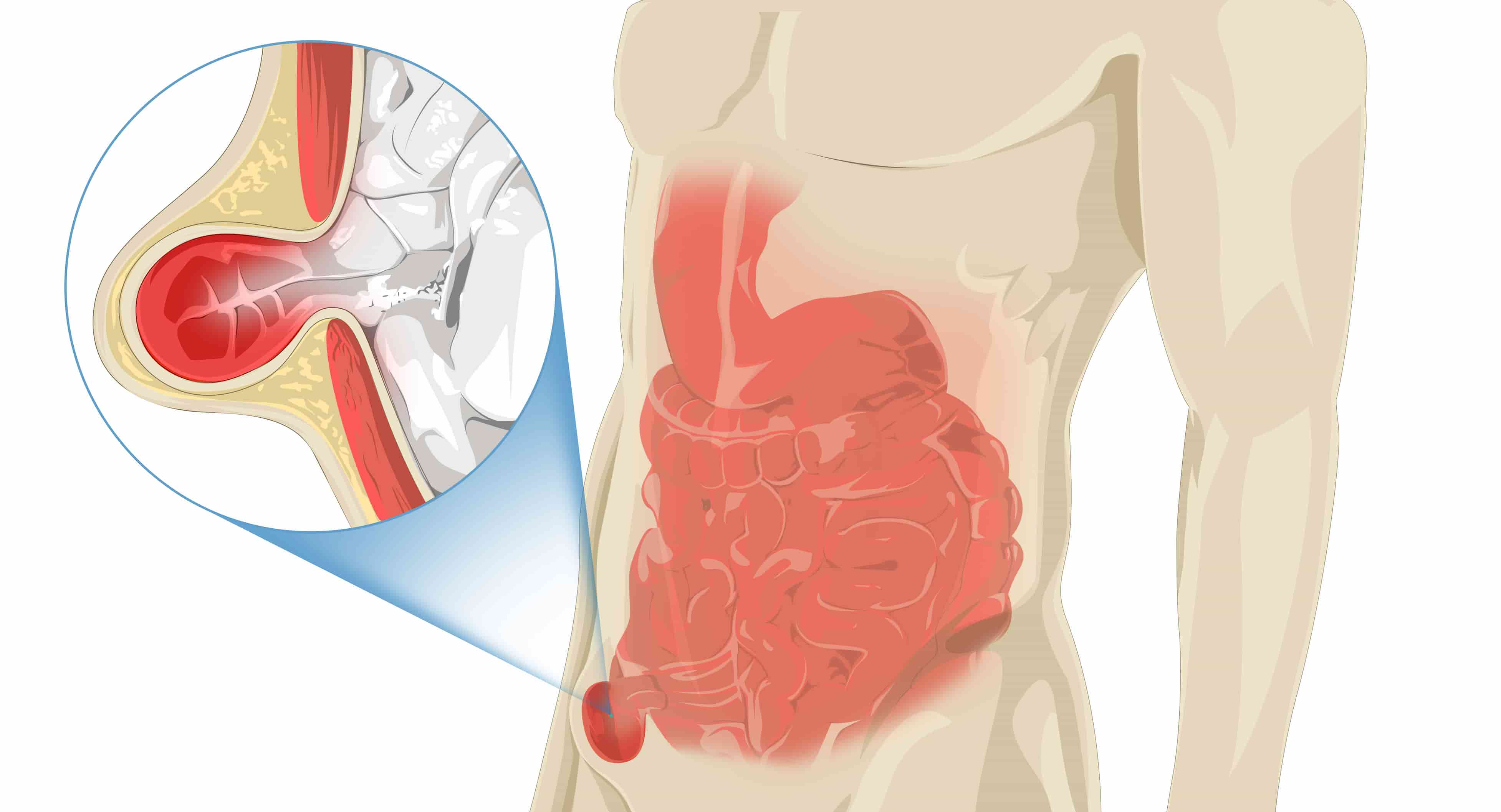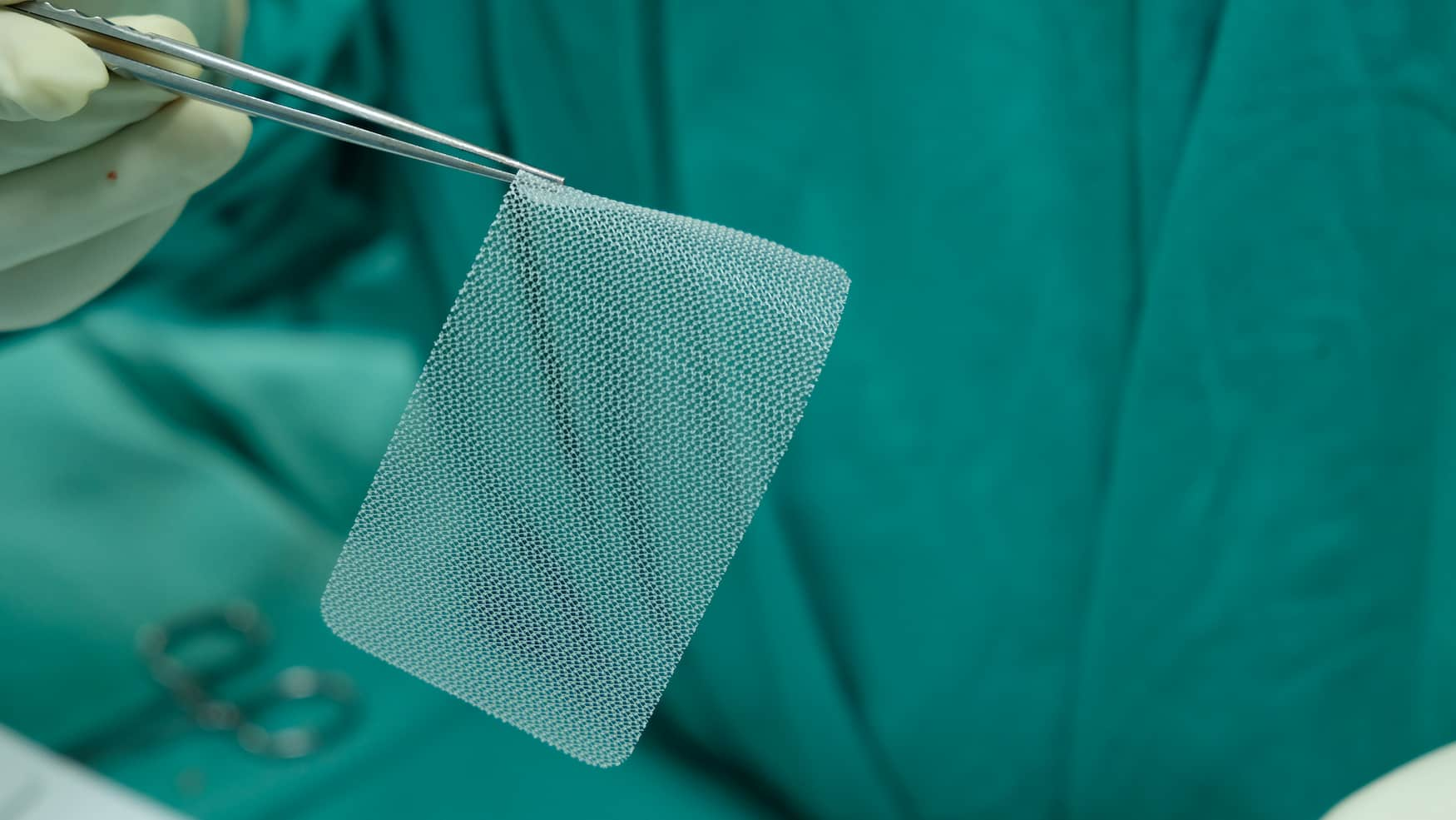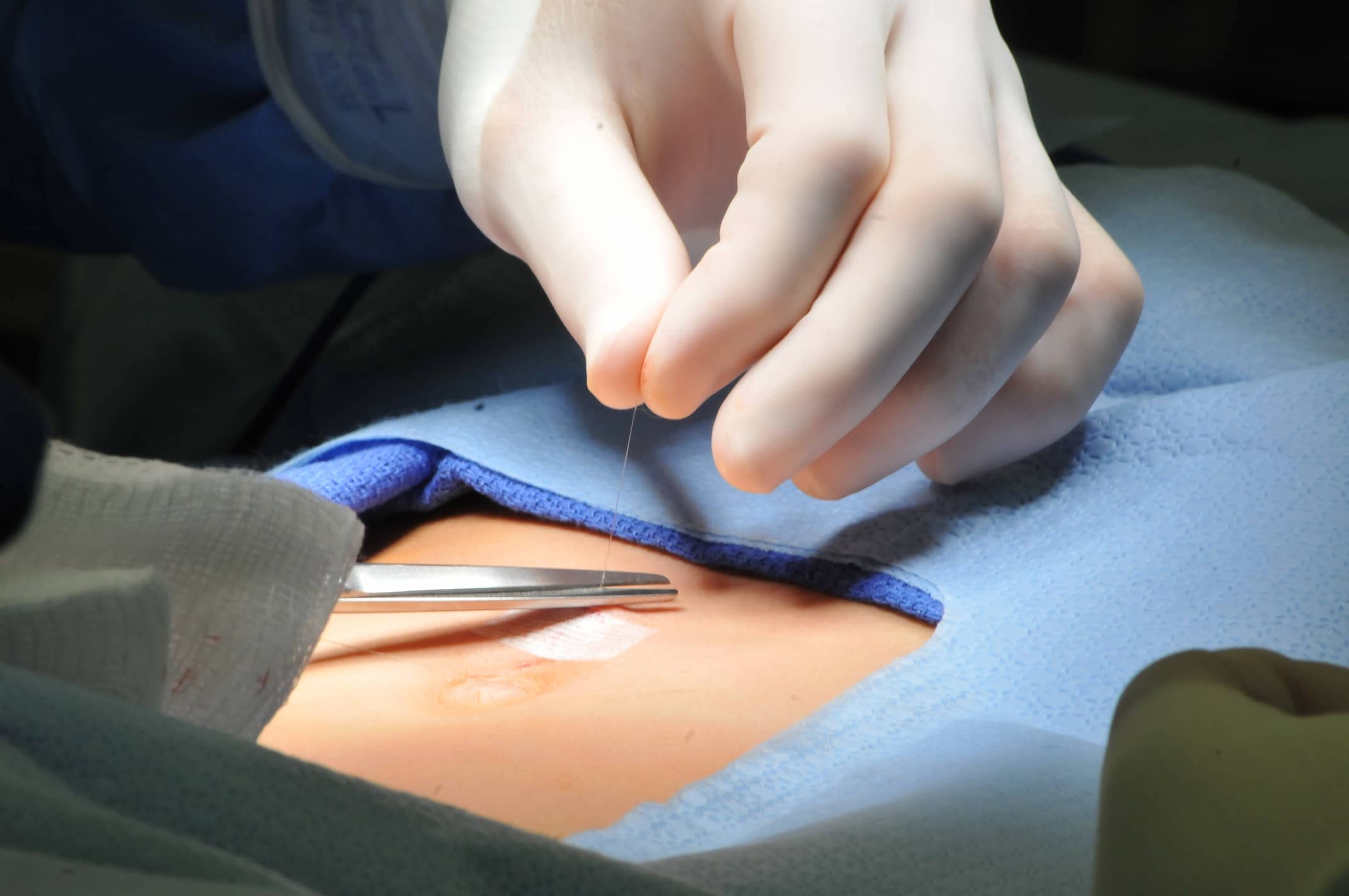Hernia Reparatie Chirurgie in Turkije
- Medische Behandeling
- Algemene chirurgie in Turkije
- Laparoscopische Gastric Sleeve Operatie in Turkije
- Mastectomie Chirurgie in Turkije
- Aambeienbehandeling in Turkije
- Levertransplantatie in Turkije
- Longbiopsie in Turkije
- Lumpectomie in Turkije
- Cholecystectomie in Turkije
- Diabetes Chirurgie in Turkije
- Diabetische Chirurgie in Turkije
- Laparoscopische Cholecystectomie in Turkije
- Laparoscopische Chirurgie in Turkije
- Hernia Reparatie Chirurgie in Turkije
- Proctologiechirurgie in Turkije
- Milt Verwijderingsoperatie in Turkije
- Thyreoïdectomie in Turkije
- Tumorverwijderingsoperatie in Turkije
- Leverresectie in Turkije
- Startpagina
- Medische Behandeling
- Hernia Reparatie Chirurgie in Turkije

Over Herniaherstel Chirurgie in Turkije
Herniaherstel chirurgie in Turkije, ook bekend als herniorrhaphie, verplaatst het orgaan of lichaamsdeel terug naar zijn natuurlijke positie en repareert eventuele schade. Dit kan een hiatale, inguinale of umbilicale chirurgie zijn, afhankelijk van het toegangsgebied. Zodra een hernia is opgetreden, zal deze niet vanzelf verdwijnen; chirurgie is de enige manier om een hernia te herstellen. Als uw hernia geen aanzienlijke pijn of ongemak veroorzaakt en uw werk of normale huishoudelijke activiteiten niet beïnvloedt, is het niet altijd noodzakelijk om uw hernia te laten herstellen. U kunt de hernia tot op zekere hoogte onder controle houden met ondersteunende kleding en een 'truss' proberen.
Herniaherstel chirurgie kan in Turkije worden uitgevoerd via de traditionele open methode, de robotische methode of de minimaal invasieve laparoscopische methode. Herniaherstel chirurgie wordt vaak poliklinisch uitgevoerd en kan onder plaatselijke of algehele anesthesie worden uitgevoerd. De procedure is over het algemeen binnen 1-2 uur voltooid.
Een van de meest voorkomende oorzaken van een hernia is een klein deel van de darm of vet dat door een kwetsbaar gebied in de spierwand van de buik steekt. Dit veroorzaakt een pijnlijke uitstulping, meestal rond de lies. Het kan normale functies op verschillende plaatsen verstoren. Bij mannen kan een kleine opening in de buikwand ter hoogte van de lies waar de zaadstreng doorheen gaat, ook groter worden, wat een hernia veroorzaakt.
Bij Healthy Türkiye zijn we gepassioneerd over het geven van een positieve ervaring en uitstekende klinische resultaten aan patiënten, met gepersonaliseerde zorg tijdens elke stap van het proces. We bieden snelle toegang tot hoogwaardige herniaherstel chirurgie en behandeling met succesvolle resultaten in Turkije.

Herniorrhaphie in Turkije
Herniaherstel chirurgie is een van de meest uitgevoerde operaties in Turkije. Een hernia is een uitstulping, veroorzaakt door een orgaan dat door een zwakke plek in de wand van de holte eromheen steekt. Het kan op vele plaatsen in uw lichaam voorkomen. De meest voorkomende plaats voor een hernia is de buik. De meeste hernia's kunnen op dagbasis worden behandeld onder plaatselijke of algehele anesthesie, afhankelijk van de keuze van de patiënt en hun medische achtergrond.
Hernia's zullen niet beter worden zonder herniaherstel chirurgie. Als u uw hernia negeert, kan deze niet erger worden, maar het kan groter worden, pijnlijker worden en moeilijker te repareren zijn. Een hernia loopt ook het risico op levensbedreigende complicaties, zoals beknelling (obstructie) of afsnijding van de bloedtoevoer (strangulatie) in extreme gevallen.
Bij Healthy Türkiye bieden we de meest up-to-date behandelingsopties voor hernia patiënten. We hebben ook een uitstekend ervaren team van chirurgen in Turkije die de modernste, goed beproefde technieken in hernia chirurgie toepassen. Wij geloven dat patiënteneducatie en informatie een zeer belangrijk onderdeel van onze service zijn, zodat patiënten een keuze kunnen maken over waar, hoe en wanneer zij hun hernia willen laten behandelen.
Types Hernia
Een hernia wordt veroorzaakt wanneer een deel van de inhoud van de buikholte door een opening in de buikwand duwt en zwelling veroorzaakt. Het is een veelvoorkomende situatie, die vaker bij mannen voorkomt. De opening in de buikwand ontstaat op een plek van mogelijke zwakte en wordt vaak voor het eerst opgemerkt na zware inspanning. Dit zijn de zes meest voorkomende types hernia:
Inguinale Hernia
Een inguinale hernia ontstaat wanneer een klein deel van de darm door het lieskanaal, een doorgang of opening door de spieren van de buikwand naar de lies, uitsteekt. De uitstulping bevat vaak weefsel dat de binnenkant van de buik bekleedt en vetweefsel van binnenuit de buik of het kan een lus van de darm bevatten. Er zijn twee soorten inguinale hernia's: direct en indirect.
Femoraal Hernia
Een femoraal hernia ontstaat wanneer weefsel uit de onderbuik naar boven in het bovenbeen, net onder de liesplooi, uitpuilt. Femoraal hernia's ontstaan vaker bij vrouwen dan bij mannen. Pijn door een femoraal hernia wordt over het algemeen gevoeld in de liesstreek. Het wordt soms verward met een inguinale hernia waardoor een femoraal hernia moeilijk te diagnosticeren kan zijn.
Umbilicale Hernia
Een umbilicale hernia ontstaat wanneer de darm, vet of vocht door een zwakke plek in de buik naar buiten duwt. Dit veroorzaakt een uitstulping nabij de navel. Umbilicale hernia's kunnen zich ook ontwikkelen bij mensen met gezondheidsproblemen die druk in de buik veroorzaken, zoals overgewicht, zwanger zijn of te veel vocht in de buik hebben.
Incisionele Hernia
Een incisionele hernia kan ontstaan na een operatie in de buik en kan maanden of zelfs jaren na de operatie optreden. Het komt meestal voor langs een verticale (op en neer) incisie. Dit type hernia kan zich ontwikkelen bij mensen die: Erg overgewicht hebben, ouder zijn, steroïde medicijnen hebben gebruikt, longproblemen hadden na een operatie, een wondinfectie hadden na een operatie, of meer dan één operatie ondergingen met gebruik van dezelfde incisie.
Epigastrische Hernia
Epigastrische hernia's zijn uitstulpingen die zich voordoen in het bovenste deel van de buikwand in een gebied dat bekend staat als het epigastrium, dat zich boven de navel en net onder het borstbeen bevindt. Epigastrische hernia's kunnen van geboorte aanwezig zijn. Ze kunnen variëren in grootte en het is mogelijk om meer dan één epigastrische hernia tegelijk te hebben.
Over het algemeen is een epigastrische hernia klein, waarbij alleen de voering van de buik door het omringende weefsel breekt. Grotere hernia's kunnen ook vetweefsel of een deel van de maag naar buiten duwen.
Hiatale Hernia
Een hiatale hernia is anders dan andere typen hernia's omdat het de maag betreft in plaats van de darm, dus het ontstaat wanneer een deel van uw maag door uw middenrif naar boven in uw borst uitpuilt. Het middenrif is een spierlaag die uw buik scheidt van de borst. U kunt een hiatale hernia niet voelen en geen uitstulping zien.
Meestal heeft een hiatale hernia over het algemeen geen symptomen. Maar één teken dat u misschien heeft, is brandend maagzuur. Als u meestal symptomen heeft, of als ze erg ernstig zijn, kunt u ook gastro-oesofageale refluxziekte (GERD) hebben. Een hiatale hernia kan ook leiden tot GERD. Het is gebruikelijk om beide problemen tegelijk te hebben.

Wij zorgen voor uw gezondheid
Healthy Türkiye biedt het beste voor uw gezondheid en comfort. U zult zich bevoorrecht voelen bij ons.
24/7 Kwalitatieve Persoonlijke Assistentie Tijdens Uw Reis
Aanpasbare All-Inclusive Pakketten voor U
Krijg het Juiste Advies voor Uw Gezondheid
Types Herniaherstel Chirurgie in Turkije
Herniaherstel chirurgie is typisch een dagbehandeling die kan worden uitgevoerd via open, laparoscopische of robotchirurgie. Elke methode heeft voor- en nadelen. Het type chirurgie dat u ondergaat, zal gebaseerd zijn op uw individuele gezondheid, eerdere operaties, de grootte van de hernia en, de voorkeur van uw chirurg.
Open Herniaherstel Chirurgie in Turkije
Open herniaherstel chirurgie is waar een incisie, of snee, wordt gemaakt in de lies. De hernia 'zak' met de uitpuilende darm wordt geïdentificeerd. Vervolgens duwt de chirurg de hernia terug in de buik en versterkt de buikwand met steken of synthetisch mesh. Meestal kunnen patiënten een paar uur na de herniaherstel chirurgie naar huis en binnen een paar dagen herstellen. Bij open herniaherstel chirurgie worden vaak zware activiteiten en oefeningen voor vier tot zes weken na de operatie beperkt.
Laparoscopische (minimaal invasieve) Herniaherstel Chirurgie in Turkije
Laparoscopische herniaherstel chirurgie maakt gebruik van een laparoscoop, een dun, telescoopachtig instrument dat door een kleine incisie bij de navel wordt ingebracht. Deze procedure wordt vaak uitgevoerd onder algehele anesthesie, dus voorafgaand aan de operatie krijgt u een evaluatie van uw algemene gezondheidstoestand, inclusief een geschiedenis, een lichamelijk onderzoek en een elektrocardiogram (ECG).
De buik wordt opgeblazen met kooldioxide, waardoor ruimte ontstaat zodat uw arts uw interne structuren kan bekijken. Het buikvlies wordt doorgesneden om het defect in de buikwand bloot te leggen. Ook wordt het netje aan de binnenkant geplaatst om de defecten in de buikwand te bedekken en het weefsel te versterken. Na afloop van de procedure worden de kleine buiksneden gesloten met twee steken of chirurgisch tape. Binnen 1-2 maanden zijn de incisions nauwelijks zichtbaar.
Voordelen van laparoscopische herniachirurgie zijn onder andere drie kleine littekens in plaats van één grotere incisie, minder pijn na de operatie, een snellere terugkeer naar het werk en een kortere hersteltijd (dagen in plaats van weken).
Robotische Hernia Reparatie Chirurgie in Turkije
Robotische hernia-reparatie, net als laparoscopische chirurgie, gebruikt een laparoscoop en wordt op dezelfde manier uitgevoerd. Robotische chirurgie verschilt van laparoscopische chirurgie doordat uw chirurg in de operatiekamer op een console zit en de chirurgische instrumenten vanaf de console bedient. Hoewel robotchirurgie kan worden gebruikt voor enkele kleinere hernia's of zwakke gebieden, kan het in Turkije ook worden gebruikt om de buikwand te reconstrueren.
Een van de grootste verschillen tussen laparoscopische chirurgie en robotchirurgie is dat het gebruik van de robot uitstekende driedimensionale beelden van de binnenkant van de buik verzekert (vs. de tweedimensionale beelden van laparoscopische chirurgie). Bovendien maakt robotchirurgie het de chirurg makkelijk om hechtingen te gebruiken om weefsel en mesh in de buik te naaien. Andere voordelen van robotische herniachirurgie zijn dat de patiënt kleine littekens heeft in plaats van één groot litteken, en er mogelijk minder pijn is na deze operatie vergeleken met traditionele open chirurgie.
Verschillende typen hernia's vereisen verschillende soorten chirurgie. Ook zijn er verschillende soorten hernia-reparatiechirurgie, waaronder:
Herniorrafie (Weefselherstel) in Turkije
Herniorrafie is de oudste vorm van hernia-reparatiechirurgie en wordt nog steeds gebruikt. Het houdt in dat een chirurg een lange incisie direct boven de hernia maakt en daarna chirurgische instrumenten gebruikt om de snede genoeg te openen om toegang te krijgen. Verplaatste weefsels of organen worden vervolgens naar hun oorspronkelijke locatie teruggebracht en de hernia-zak wordt verwijderd. De chirurg hecht de zijden van de spieropening waardoor de hernia naar buiten steekt. Tenslotte, eenmaal de wond gesteriliseerd is, wordt de wond dichtgenaaid.
Hernioplastiek (Netherstel) in Turkije
Bij hernioplastiek, in plaats van het dichtnaaien van de spieropening, bedekt de chirurg deze met een plat, steriel netje, dat meestal is gemaakt van flexibele kunststof, zoals polypropyleen, of dierlijk weefsel. De chirurg maakt kleine sneden rond het gat in de vorm van het netje en naait het daarna vast aan de gezonde, onbeschadigde omringende weefsels. Beschadigde weefsels rondom de hernia gebruiken het netje als ondersteunend, versterkend wichel als ze opnieuw groeien. Hernioplastiek staat meestal bekend als spanningvrije hernia-reparatie.

Herstel van Hernia-reparatiechirurgie
Uw herstel van hernia-reparatiechirurgie, vooral laparoscopische of robotische methoden, is doorgaans snel. U kunt meestal dezelfde dag naar huis.
Het duurt ongeveer drie weken om te herstellen van een hernia-reparatiechirurgie. U moet lichte activiteiten kunnen uitvoeren. Zware inspanningen moeten pas ten minste zes weken na de operatie worden ondernomen, om het risico op hernia-terugkeer te verminderen. De meeste chirurgen raden aan geen gewicht zwaarder dan een melkfles op te tillen tussen twee en zes weken.
Enige zwelling is gebruikelijk in het gebied rond de incisie na een herniorrafie. Het moet met de tijd afnemen en is geen indicatie dat de operatie niet succesvol is geweest. Om eventuele pijn en zwelling te verminderen, plaatst u een schone, dunne doek over het gebied en brengt u wat ijs of een koud kompres aan gedurende ongeveer 20-25 minuten, dit kan elke paar uur worden gedaan.
U kunt uw dagelijkse activiteiten hervatten zodra u zich in staat voelt, vaak binnen een week.
Oefening voor Hernia
Dagelijkse oefening helpt de buikspieren te versterken die dicht bij de hernia liggen, helpt de symptomen van de hernia te verminderen en u kunt een gezond gewicht behouden om verdere complicaties te voorkomen. Uit studies blijkt dat mensen die zwaarlijvig zijn en een ventrale hernia-reparatie ondergaan, een oefenregime volgen. Deze patiënten hadden minder complicaties na hernia-reparatiechirurgie. U moet voorzichtig zijn met oefeningen zoals gewichtheffen of oefeningen die druk uitoefenen op de buik, omdat deze oefeningen extra druk kunnen toevoegen aan het gebied van de hernia. Het kan de herniabult vergroten.
Als u een bult opmerkt die verband houdt met een hernia, wordt het altijd aanbevolen om contact op te nemen met Healthy Türkiye over de oefening. Zij kunnen u adviseren over de oefeningen die u aan uw fitnessregime kunt toevoegen om de symptomen van hernia te verminderen.

2026 Kosten voor Hernia-reparatiechirurgie in Turkije
Alle soorten medische zorg, zoals hernia-reparatiechirurgie, zijn zeer betaalbaar in Turkije. Er zijn veel factoren die de kosten van hernia-reparatiechirurgie in Turkije bepalen. Uw proces met Healthy Türkiye begint vanaf het moment dat u besluit hernia-reparatiechirurgie in Turkije te ondergaan totdat u volledig hersteld bent, zelfs als u weer thuis bent. De exacte kosten van hernia-reparatiechirurgie in Turkije hangen af van het type operatie dat wordt uitgevoerd.
De kosten voor hernia-reparatiechirurgie in Turkije tonen geen grote variaties in 2026. In vergelijking met de kosten in ontwikkelde landen zoals de Verenigde Staten of het Verenigd Koninkrijk, zijn de kosten voor hernia-reparatiechirurgie in Turkije relatief laag. Dus het is geen wonder dat patiënten van over de hele wereld naar Turkije komen voor hernia-reparatiechirurgieprocedures. Echter, de prijs is niet de enige factor die keuzes beïnvloedt. We raden aan om ziekenhuizen te zoeken die veilig zijn en beoordelingen van hernia-reparatiechirurgie op Google hebben. Wanneer mensen besluiten medische hulp te zoeken voor hernia-reparatiechirurgie, hebben ze niet alleen lage kostenprocedures in Turkije, maar ook de veiligste en beste behandeling gehad.
Bij klinieken of ziekenhuizen die met Healthy Türkiye gecontracteerd zijn, ontvangen patiënten de beste hernia-reparatiechirurgie van gespecialiseerde artsen in Turkije tegen betaalbare tarieven. Healthy Türkiye-teams bieden medische zorg voor hernia-reparatiechirurgieprocedures en hoogwaardige behandeling aan patiënten tegen minimale kosten. Wanneer u contact opneemt met Healthy Türkiye-assistenten, kunt u gratis informatie krijgen over de kosten van hernia-reparatiechirurgie in Turkije en wat deze kosten dekken.
Waarom Is Hernia-reparatiechirurgie Goedkoper in Turkije?
Een van de belangrijkste overwegingen voordat u naar het buitenland reist voor hernia-reparatiechirurgie, is de kosteneffectiviteit van het hele proces. Veel patiënten denken dat wanneer ze vliegtickets en hotelkosten toevoegen aan hun hernia-reparatiechirurgiekosten, het erg duur zou worden om te reizen, wat niet waar is. In tegenstelling tot wat vaak wordt gedacht, kunnen retourtickets naar Turkije voor hernia-reparatiechirurgie zeer betaalbaar worden geboekt.
In dit geval, aangezien u in Turkije blijft voor uw hernia-reparatiechirurgie, zullen uw totale reiskosten van vliegtickets en accommodatie alleen minder kosten dan in eender welke andere ontwikkelde landen, wat niks is in vergelijking met het bedrag dat u bespaart. De vraag "waarom is hernia-reparatiechirurgie goedkoper in Turkije?" is zo gewoon onder patiënten of mensen die simpelweg nieuwsgierig zijn naar het krijgen van hun medische behandeling in Turkije. Als het gaat om prijzen van hernia-reparatiechirurgie in Turkije, zijn er 3 factoren waardoor er goedkopere prijzen zijn:
De valutakoers is gunstig voor degenen die hernia-reparatiechirurgie overwegen en een euro, dollar of pond hebben;
De lagere kosten van levensonderhoud en goedkopere algehele medische kosten zoals herniaoperatie;
Voor herniaoperaties worden door de Turkse overheid incentives gegeven aan medische klinieken die werken met internationale cliënten;
Al deze factoren zorgen voor goedkopere prijzen voor herniaoperaties, maar laten we duidelijk zijn, deze prijzen zijn goedkoper voor mensen met sterke valuta's (zoals we al zeiden, euro, dollar, Canadese dollar, pond, enz.).
Elk jaar komen duizenden patiënten van over de hele wereld naar Turkije voor een herniaoperatie. Het succes van het gezondheidssysteem is de laatste jaren toegenomen, vooral voor herniaoperaties. Het is gemakkelijk om goed opgeleide en Engels sprekende medische professionals te vinden in Turkije voor alle soorten medische behandelingen, zoals herniaoperaties.
Waarom Kiezen voor een Hernia Reparatieoperatie in Turkije?
Turkije is een veelgemaakte keuze onder internationale patiënten die op zoek zijn naar geavanceerde herniaoperaties. Turkije’s gezondheidsprocedures zijn veilige en effectieve operaties met een hoog slagingspercentage zoals herniaoperaties. De toenemende vraag naar hoogwaardige herniaoperaties tegen betaalbare prijzen heeft van Turkije een populaire medische reisbestemming gemaakt. In Turkije worden herniaoperaties uitgevoerd door zeer ervaren en getrainde artsen met de meest geavanceerde technologie ter wereld. Herniaoperaties worden uitgevoerd in Istanbul, Ankara, Antalya en andere grote steden. De redenen om te kiezen voor een herniaoperatie in Turkije zijn als volgt:
Hoogwaardige ziekenhuizen: Joint Commission International (JCI) geaccrediteerde ziekenhuizen hebben speciale hernia-operatie units die speciaal zijn ontworpen voor patiënten. Internationale en nationale strikte protocollen zorgen voor effectieve en succesvolle herniaoperaties voor patiënten in Turkije.
Gekwalificeerde experts: De deskundige teams omvatten verpleegkundigen en gespecialiseerde artsen die samen de herniaoperatie uitvoeren volgens de behoeften van de patiënt. Alle betrokken artsen hebben veel ervaring met het uitvoeren van herniaoperaties.
Betaalbare prijs: De kosten van een herniaoperatie in Turkije zijn betaalbaar in vergelijking met Europa, de VS, het VK, Singapore, Australië, enz.
Hoog slagingspercentage: Zeer ervaren specialisten, de beste beschikbare technologie en streng nageleefde veiligheidsrichtlijnen voor postoperatieve zorg van de patiënt, resulteren in een hoog slagingspercentage voor herniaoperaties in Turkije.
Is een Herniaoperatie Veilig in Turkije?
Wist u dat Turkije een van de meest bezochte bestemmingen voor herniaoperaties ter wereld is? Het wordt gerangschikt als een van de meest bezochte toeristische bestemmingen voor herniaoperaties. In de loop der jaren is het ook een zeer populaire medische toerismedestinatie geworden met veel toeristen die komen voor herniaoperaties. Er zijn zoveel redenen waarom Turkije opvalt als een toonaangevende bestemming voor herniaoperaties. Omdat Turkije zowel veilig als gemakkelijk te bereizen is met een regionaal luchthavenknooppunt en vliegverbindingen naar vrijwel overal, wordt het geprefereerd voor herniaoperaties.
De beste ziekenhuizen in Turkije hebben ervaren medisch personeel en specialisten die duizenden medische diensten hebben verleend, zoals herniaoperaties. Alle procedures en coördinatie met betrekking tot herniaoperaties worden gecontroleerd door het Ministerie van Volksgezondheid in overeenstemming met de wet. Over vele jaren heen is de grootste vooruitgang in de geneeskunde waargenomen op het gebied van herniaoperaties. Turkije staat onder buitenlandse patiënten bekend om zijn grote kansen op het gebied van herniaoperaties.
Om te benadrukken, naast de prijs zelf, is de belangrijkste factor bij het kiezen van een bestemming voor herniaoperaties zeker de standaard van medische diensten, de hoge expertise van het ziekenhuispersoneel, gastvrijheid en de veiligheid van het land.
All-Inclusive Pakket voor Herniaoperatie in Turkije
Healthy Türkiye biedt all-inclusive pakketten voor herniaoperaties in Turkije tegen veel lagere prijzen. Uitermate professionele en ervaren artsen en technici voeren hoogwaardige herniaoperaties uit. De kosten van herniaoperaties in Europese landen kunnen behoorlijk duur zijn, vooral in het VK. Healthy Türkiye biedt goedkope all-inclusive pakketten voor een lang en kort verblijf voor herniaoperaties in Turkije. Vanwege vele factoren kunnen we u veel mogelijkheden bieden voor uw herniaoperatie in Turkije.
De prijs van een herniaoperatie verschilt van andere landen vanwege medische kosten, arbeidskosten van het personeel, wisselkoersen en marktconcurrentie. U kunt veel meer besparen op herniaoperaties in vergelijking met andere landen in Turkije. Wanneer u een all-inclusive herniapakket koopt bij Healthy Türkiye, presenteert ons gezondheidsteam hotels voor u om uit te kiezen. Bij hernia operatie reizen wordt de prijs van uw verblijf opgenomen in de all-inclusive pakketprijs.
In Turkije, wanneer u all-inclusive pakketten voor herniaoperaties aanschaft via Healthy Türkiye, ontvangt u altijd VIP-transfers. Deze worden geleverd door Healthy Türkiye, dat is gecontracteerd met zeer gekwalificeerde ziekenhuizen voor herniaoperaties in Turkije. Healthy Türkiye teams zullen alles organiseren met betrekking tot herniaoperaties voor u en zorgen dat u wordt opgehaald van de luchthaven en veilig naar uw accommodatie wordt gebracht. Eenmaal gesetteld in het hotel, wordt u heen en weer gebracht naar de kliniek of het ziekenhuis voor herniaoperaties. Nadat uw herniaoperatie met succes is afgerond, brengt het transferteam u op tijd naar de luchthaven voor uw vlucht terug naar huis. In Turkije kunnen alle pakketten voor herniaoperaties op verzoek worden geregeld, wat de gemoedsrust van onze patiënten vergroot. U kunt contact opnemen met Healthy Türkiye voor alles wat u moet weten over herniaoperaties in Turkije.
De Beste Ziekenhuizen in Turkije voor Hernia Reparatie Chirurgie İn
De beste ziekenhuizen in Turkije voor hernia reparatie chirurgie in zijn Healthy Türkiye, Memorial Hospital, Acıbadem International Hospital en Medicalpark Hospital. Deze ziekenhuizen trekken patiënten van over de hele wereld aan die op zoek zijn naar hernia reparatie chirurgie in vanwege hun betaalbare prijzen en hoge slagingspercentages.
De Beste Artsen en Chirurgen in Turkije voor Hernia Reparatie Chirurgie
De beste artsen en chirurgen in Turkije voor hernia reparatie chirurgie zijn hoogopgeleide professionals die gespecialiseerde zorg en geavanceerde procedures aanbieden. Met hun expertise en geavanceerde technieken zorgen deze specialisten ervoor dat patiënten hoogwaardige hernia reparatie chirurgie ontvangen en optimale gezondheidsresultaten bereiken.

Veelgestelde Vragen
De meeste patiënten kunnen binnen 1-2 weken na de operatie weer aan het werk. Maar als uw werk zwaar tillen of inspannende activiteiten vereist, moet u misschien 4-6 weken vrij nemen.
Nee, hernia’s gaan niet vanzelf over. In feite zullen ze waarschijnlijk erger worden naarmate het getroffen gebied van uw buikwand zwakker wordt.
U moet vermijden om meer dan 10 pond te tillen gedurende vier weken en overmatig bukken of draaien gedurende 1-2 weken na de operatie. Dit is om de genezing van de incisies mogelijk te maken en het risico te verminderen dat uw hernia terugkomt.
Patiënten krijgen het advies dat ze waarschijnlijk 10-15 pond zullen verliezen tijdens de eerste 5 weken na de operatie.
U moet geen brood, crackers, koekjes, dikke stukken vlees zoals steaks en droge maaltijden zoals koude vleeswaren eten. U kunt zacht voedsel eten zoals goed gekookte pasta, gehakt, vlokkenvis, goed gekookte rijst, peulvruchten en groenten met veel saus.
U moet voorkomen dat u alcohol drinkt, machines bedient of juridische documenten ondertekent gedurende minimaal 48 uur na elke operatie waarbij een algemene verdoving wordt gebruikt.
Het terugvalpercentage voor liesbreuken is 1-3 procent, terwijl het voor buikhernia’s (ventrale hernia’s) 5-10 procent is en 10 tot 15 procent voor stoma-hernia’s. Voor de meest complexe hernia’s is het terugvalpercentage 10-20 procent, afhankelijk van de aard van de hernia en andere factoren.
